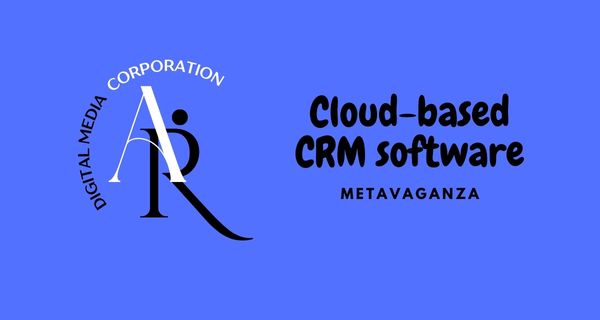Cloud-based CRM software – In today’s highly competitive business landscape, managing customer relationships is of utmost importance.
To streamline and enhance this critical aspect of business operations, many companies are turning to cloud-based CRM software.
Cloud-based CRM Software
This article explores the benefits, features, considerations, case studies, and future trends of cloud-based CRM software, providing valuable insights for businesses looking to optimize their customer relationship management processes.
Benefits of Cloud-based CRM Software
Cloud-based CRM software offers numerous benefits for businesses of all sizes. Firstly, it provides flexibility and scalability, allowing companies to easily adjust their CRM systems as their customer base grows.
Additionally, cloud-based CRM software enables remote access, empowering sales teams to access critical customer information anytime, anywhere.
Moreover, it eliminates the need for extensive hardware investments and maintenance, as the software is hosted and managed by the CRM provider. This leads to cost savings and allows businesses to focus on their core competencies.
Key Features of Cloud-based CRM Software
Cloud-based CRM software comes equipped with a range of powerful features. These include contact management, lead tracking, sales forecasting, task automation, email marketing integration, and reporting and analytics.
Contact management enables businesses to store and organize customer information efficiently. Lead tracking helps track and analyze sales leads, providing insights into the sales pipeline. Sales forecasting enables accurate revenue projections, aiding in strategic planning.
Task automation automates routine tasks, saving time and reducing manual errors. Email marketing integration allows businesses to effectively communicate with customers, while reporting and analytics provide valuable data for informed decision-making.
Factors to Consider When Choosing Cloud-based CRM Software
When selecting a cloud-based CRM software solution, businesses should consider several factors. It’s crucial to assess the specific needs of the organization, such as the desired functionalities and integration requirements.
Scalability is another important factor, ensuring that the CRM software can accommodate business growth. Ease of use and user interface intuitiveness contribute to user adoption and productivity. Additionally, data security and privacy measures should be thoroughly evaluated to safeguard sensitive customer information.
Lastly, considering the reputation, support, and pricing structure of the CRM provider is essential to make an informed decision.
Popular Cloud-based CRM Software Solutions
Several cloud-based CRM software solutions have gained popularity in the market. Salesforce, a market leader, offers a comprehensive CRM platform with a wide range of functionalities and integrations.
HubSpot CRM provides a user-friendly interface and is known for its inbound marketing capabilities. Zoho CRM offers extensive customization options and caters to businesses of all sizes.
Microsoft Dynamics 365 combines CRM and ERP functionalities, providing a holistic solution. These are just a few examples, and businesses should explore and evaluate various options to find the best fit for their specific needs.
Case Studies: Successful Implementation of Cloud-based CRM Software
To illustrate the effectiveness of cloud-based CRM software, let’s examine a few real-world case studies. Company X, a global e-commerce retailer, implemented Salesforce CRM and experienced a 20% increase in sales productivity within six months.
The centralized customer data and automated workflows allowed their sales teams to focus on building customer relationships. Similarly, Company Y, a software development firm, adopted HubSpot CRM and witnessed a 30% reduction in the sales cycle time.
The seamless integration with their marketing efforts enabled targeted lead nurturing and better collaboration between sales and marketing teams.
Integrating Cloud-based CRM Software with Other Business Systems
For optimal results, businesses should integrate their cloud-based CRM software with other critical business systems. Integration with marketing automation tools allows businesses to align their marketing and sales efforts, ensuring a cohesive customer journey.
Integration with customer support systems enables a seamless flow of information, enhancing customer service experiences. Moreover, integrating CRM software with accounting and finance systems facilitates accurate revenue tracking and financial reporting.
These integrations enhance overall operational efficiency and provide a unified view of customer interactions across the organization.
Security and Privacy Considerations for Cloud-based CRM Software
As customer data is invaluable and often sensitive, security and privacy considerations are paramount when using cloud-based CRM software. Businesses must choose reputable CRM providers that prioritize data protection and adhere to industry standards and regulations.
Measures such as data encryption, secure authentication, and regular system backups should be in place to safeguard customer information.
Additionally, implementing user access controls and training employees on data privacy best practices are essential to prevent unauthorized access and data breaches.
Future Trends in Cloud-based CRM Software
The future of cloud-based CRM software looks promising, with several exciting trends on the horizon. Artificial intelligence (AI) and machine learning (ML) will play a significant role in enhancing CRM functionalities.
Predictive analytics powered by AI will enable businesses to anticipate customer needs and personalize interactions. Voice-enabled CRM interfaces will become more prevalent, enabling hands-free interaction and convenience.
Furthermore, enhanced integration capabilities with Internet of Things (IoT) devices will provide valuable data insights for more proactive customer management.
Conclusion
Cloud-based CRM software offers businesses a powerful tool to effectively manage customer relationships. With its flexibility, scalability, and numerous features, it empowers businesses to streamline their CRM processes and improve customer satisfaction.
However, selecting the right CRM software requires careful consideration of factors such as specific business needs, scalability, usability, security, and pricing. By leveraging cloud-based CRM software and integrating it with other business systems, companies can unlock significant operational efficiencies and drive growth.
FAQs
1. How does cloud-based CRM software differ from on-premise CRM software?
Cloud-based CRM software is hosted and managed by a CRM provider, allowing businesses to access it remotely via the internet. On the other hand, on-premise CRM software is installed and maintained locally on the company’s own servers. Cloud-based CRM offers greater flexibility, scalability, and accessibility, whereas on-premise CRM provides more control and customization options.
2. Can cloud-based CRM software be customized to fit specific business requirements?
Yes, most cloud-based CRM software solutions offer customization options to adapt to specific business needs. This includes custom fields, workflows, and reports. However, the level of customization may vary between different CRM providers, so it’s essential to evaluate their capabilities before making a decision.
3. How secure is customer data in cloud-based CRM software?
CRM providers prioritize data security and implement various measures to protect customer data. This includes data encryption, secure authentication, and regular backups. It’s crucial to choose a reputable CRM provider that follows industry-standard security practices and complies with relevant data protection regulations.
4. Can cloud-based CRM software integrate with other business systems?
Yes, cloud-based CRM software can integrate with various other business systems, such as marketing automation tools, customer support systems, and accounting and finance systems. These integrations enhance operational efficiency and provide a unified view of customer interactions across different departments.
5. What are the pricing models for cloud-based CRM software?
The pricing models for cloud-based CRM software typically vary based on factors such as the number of users, features required, and the level of support needed. Common pricing models include monthly or annual subscriptions per user, with different tiers offering varying levels of functionality and support.





